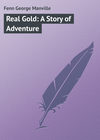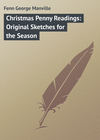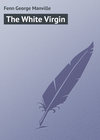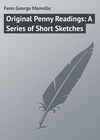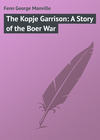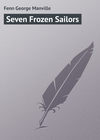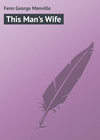Buch lesen: «Stan Lynn: A Boy's Adventures in China», Seite 5
Chapter Eight
“Come cuttee Head off.”
The night’s rest had chased away all the dull feelings that had troubled Stan, and he woke up bright, elastic, and eager for the adventures of the day. Look where he would on either shore, everything was attractive. The country was highly cultivated, and dotted with farms and dwellings belonging to what seemed to be a large and peaceable population.
But his wondering gaze was soon checked by Wing, who came out of the cabin smiling, with the announcement that “bleakfas’” was ready – an announcement as pleasant in the confines of Asia as in homely Britain; and, to the lad’s delight, he found everything quite as civilised and good.
Wing played the part of body-servant as ably as that of agent at the hong; and after the meal was over, and the lad had returned outside to watch the glorious panorama spread on either side of the river, his guide came deprecatingly behind him rubbing his hands.
“Young Lynn wantee Wing?” he asked.
“Yes; tell me,” said Stan, “how far have we to go up the river?”
“Velly long way,” replied the Chinaman, holding up his left hand with the digits spread out, and using his right index-finger for a pointer as he counted, “One, two, flee, fow, fi’. Plap sick if wind no blow.”
“And is it all beautiful?”
“Yes; allee velly beautiful. Wing countly velly fine place.”
“But are we going to sail right on up the river like this?” asked Stan.
“Yes. ’Top many time. Buy cake – buy egg – buy fluit – buy duck – buy chicken – buy lil pig. Plenty good to eat. Got lice, tea, suga’. You likee have gun shoot duck?”
“No,” said Stan; “there’s too much to look at without bothering about a gun.”
“You likee ketchee fishee? Boy get line leady, put bait hook, young Lynn ketchee fish? Velly good eat.”
“Not to-day,” replied Stan. “I want to use my eyes.”
“Yes; velly good. Young Lynn use long eyes.”
And before the lad had half-grasped the man’s meaning, Wing had shuffled back into the cabin, to return directly with his young master’s black leather binocular-case.
“Wing load long eyes – nocklah – leady to shoot?”
“Not yet,” said Stan, smiling, as he took the case, and then seated himself in a squeaking cane chair placed ready for his use, and sat back to continue watching what at times looked to him like so much beautifully painted china on a large scale.
Finding that his services were not required, Wing settled himself down upon a stool just inside the cabin entrance, and at once became busy without attracting his young master’s notice, till the boat came abreast of a beautifully shaped pagoda, evidently built with blue and white tiles, and having a marvellously striking effect in the bright sunshine, as it rose from a verdant gorge half-way up a rugged mountain-side whose slope ran steeply down to the river, which bathed its rocky foot.
“What a landmark!” thought Stan. “If one were lost, how easy it would be to look out for that tall temple and make for it!”
The glittering tiers of glazed earthenware rose one above the other, each with its wavy, puckered eaves and points bearing little bells, the topmost stories looking as if the builders had possessed ambitious ideas of making the highest pinnacle pierce the soft blue sky; and as the new-comer kept his admiring eyes fixed upon the beautiful work, the boat glided on, forcing him to turn his head a little more and a little more, till it was wrenched round so much that Wing began to appear at the left-hand corners of his eyes, and interested the lad so much by the busy interest he took in his work that Stan’s gaze became gradually transferred from the temple to the man, who went on with what he was about in profound ignorance of being observed.
It was something fresh to Stan, who more than ever realised the fact that, in spite of being heavy and plain of feature, Wing was a bit of a buck in his way, and one who took great pains to impress upon the common coolies with whom he came in contact that he belonged to a higher grade of native – one of a class who never dreamed of defiling their hands with hard work, and kept up at great trouble by many signs, in the shape of finger-nails, of their being head and not hand craftsmen.
When Stan first caught sight of him, Wing was very carefully taking off what looked like a wooden thimble, which had been formed by scraping and filing down a suitable portion of a joint of bamboo; and as this thimble-like piece was removed, the man again laid bare a long, curved finger-nail, whose point, carefully polished and smoothed, was quite an inch above the quick, and evidently “still growing.”
“What silly nonsense!” thought Stan. “What an absurd idea! Why, if he caught that nail in anything it would break down and become a painful hang-nail.”
But it soon became evident that Wing did not mean to break down that nail, for after a certain amount of scraping and polishing it was carefully covered with its thimble-like sheath, before the index-finger on his left hand was uncovered to go through the same process as its fellow.
As Stan watched he became aware of the fact that the left middle finger-nail had met with a mishap, having in all probability been broken right down, and was now being nursed up again to an aristocratic height.
All at once the man raised his eyes as if to see how his young master was getting on, and started as he saw that he was being watched.
“Are we likely to see any pirates up the river here?” said Stan quietly.
The man shook his head.
“Wing no tell,” he said gravely as he began to cover up his much-petted nails. “Plaps many bad man – plaps not none ’tall. Plenty pilate evely-wheah. Plenty bad soljee. Wing hope nevah see none no mo’. Velly glad leave boat and begin walk back. Plenty pilate on livah; plenty bad soljee way flom livah.”
“Then the discharged soldiers are worse than the pirates, Wing?” said Stan, smiling.
“Not laugh at,” said the man solemnly. “Allee dleadful bad man. Killee people and takee evely-thing away. Lun fass?”
“What do you mean – can I run fast?”
“Yes; lun velly fass?”
“Yes; I think so. Do you think we shall have to run away from some of these men?”
“Yes. Lun away and hide.”
“Oh, I suppose I could run well enough,” replied Stan; “but of course I don’t want to.”
“No; Wing don’t want lun away, but pilate – soljee makee him. Velly fass; come cuttee head off.”
“This is pleasant!” thought Stan. “It sounds like jumping out of the frying-pan into the fire.”
The consequence of this conversation was that whenever Stan could tear his eyes from the beauty and novelty of the shore on either side he was narrowly scanning the various vessels which came into sight, the greater part being small sailing-boats. But every now and then in the course of the day the tall matting sails of some towering junk would come gliding round a bend, partially hidden, perhaps, by the trees which fringed the banks; and as soon as this was seen, Stan noted that there was a little stir among the quiet, placid-looking boatmen, who began to whisper among themselves. Then, if Wing had not seen the stranger, one of them moved to where he stood and drew his attention to the distant object.
The guide seemed to be gifted with wonderfully powerful sight, which he generally used with the result that every man was placed at his ease at once. But not always. To use a nautical phrase, Wing was not upon every occasion satisfied with the cut of the stranger’s jib, and upon these occasions he turned to his young master.
“Young Lynn lettee Wing look flou’ double eyeglass?”
The binocular was handed at once, and after a great deal of focussing, handed back.
“No pilate. Tea-boat. Allee good man.”
Or he might speak with a greater tone of reverence as he shaded his eyes:
“Big junk muchee fullee silk. Wing think junk go down whalf see Misteh Blunt.”
“Not enemies, then?” said Stan.
“No; velly good fliend.”
“But there are the big eyes painted on each side of the bows.”
“Yes,” said Wing, smiling; “but good boat. No cally stink-pot to flow on boat and set fi’. No big bang gong and lot fighting-man all ovah. No. That velly good boat, and not hu’t people. Wing tell when he sees bad boat. Lun away then.”
“On shore?”
“Tly go down livah get away. Pilate come too fass. Lun to side and go light away.”
“But what will become of the boat?” asked Stan.
“Pilate send man. Take allee good thing. Set fi’.”
“Mr Blunt would not like that.”
“No. Velly angly. Kick up big low and say Wing gleat fool.”
“And what would you say?” asked Stan. “Say velly solly. Gleat pity lose nice topside boat b’long Blunt.”
“Of course.”
“But much gleat pity let pilate man choppee off Wing head and all men head. Can makee nicee boat again; can’tee makee velly good boatman.”
Stan agreed that this was a perfectly sound argument, and during the rest of the little voyage up the river he always felt greatly relieved when his guide was able to announce that the boats they passed were men of peace and not men-o’-war.
But as day succeeded day in lovely weather, and the journey continued through a glorious country, the bugbear pirates died out of the lad’s thoughts; and on the last evening, when Wing announced that they would land at a big city in the morning, and leave the boat to go back to the hong, Stan was ready to believe that his guide had been playing alarmist a great deal more than was necessary, and told him so. But Wing shook his head. “No,” he said; “pilate velly bad sometime.”
“But we shall find the land journey no worse – there will be no discharged soldiers wandering about ready to interfere with us?”
“Wing hope allee gone, but can’tee tell. Plenty fliend people heah. Tell Wing when soljee come. Young Lynn and Wing lun away.”
Chapter Nine
“A Fierce Struggle Ensued.”
Stan altered his opinion the next day when they reached a busy city built on both sides of the river, for Wing gave him a quiet hint to look, and upon turning, the lad found that they were gliding by a towering junk whose deck swarmed with villainous-looking men all well armed, while at intervals they passed four more.
“Allee bad,” whispered Wing. “No lookee; pletend can’t see pilate ship.”
Five more were passed, all of which were given a bad character; but their occupants were lying about, smoking and sleeping, eating and drinking; and being close up to the quays and warehouses of the teeming city, the men were upon their best behaviour, and not disposed to seize and plunder such small fry as the little boat from the hong.
Hence it was that Stan’s sampan remained untouched, and reached the disembarking place in safety.
Here, evidently so as not to draw attention to his young chief, Wing slung a few necessaries, scale fashion, at either end of a bamboo, balanced his load across his left shoulder, and after giving the boatmen a few instructions which led to their setting off at once on the return journey, he led Stan away from the riverside, right into the busy part of the city, where no notice was taken of them. A short time after the lad found himself at the house of one of the Chinese merchants, who gave him a warm welcome, and talked with him in pidgin-English about his father and uncle.
Stan noticed that he exhibited no little inquisitiveness about his further proceedings, shaking his head and looking very solemn as he hinted that the country was in a very disturbed state.
“But Mr Wing will know how to take care,” he said. “He will know, too, that the farther you keep from the river the less likely you are to meet with pirates or wandering bands of soldiers. You must take care.”
Wing evidently meant to take care, for that evening, after dark, he laid his hand upon Stan’s shoulder and drew him away from the window.
“Too many bad man,” he said, directing the lad’s attention to the rough-looking armed people lounging about the street. “See young Lynn and say, ‘Foleign devil. What want heah?’ No look out window. Go to bed. Sleep.”
Stan laughed at the ultra-precautions taken, but obeyed, and for want of something to occupy himself, lay down quite early, to listen to the shuffling of feet and the loud conversation going on below his window, thinking the while that he would most likely lie awake all night. But before he could make an effort to combat the drowsiness that had seized upon him he was fast asleep, and the next thing he knew was that Wing was shaking his arm.
“What is it?” he cried. “Coming to bed?”
“Get-up time,” replied the Chinaman. “Mollow molning. Come ’long.”
“But,” – began Stan. He said no more, his mouth stretching wide in a portentous yawn; and, still half-asleep, he suffered himself to be led out of the house and along a dark, uneven street, the air of which felt chilly, as if the morning was close at hand.
Twice over he began to question Wing, but received a hurried whisper to be silent, and by degrees it dawned upon him that their land journey had commenced, and that Wing was nervously anxious lest their departure should become known.
“Soljees,” he whispered, and put his hand to his lips.
“Why, there’s not a soul about,” said Stan to himself, feeling sleepy, and out of temper to a degree that made him ready to quarrel with his guide for taking such unnecessary precautions.
But he remained silent, and trudged on close behind his companion, stumbling every now and then in the darkness, and longing the while for the coming of broad daylight, so that he could avoid the rough stones and mud-holes which seemed to be always in his way.
He was surprised, too, at the extent of the city, for no sooner was one devious street passed than they plunged into another, their wanderings lasting for what must have been close upon half-an-hour, before they plunged into a narrower passage than ever – one where the overhanging eaves on either side seemed to nearly touch – while right in front a huge wall towered up, looking jetty black, all but a square patch on a level with their feet.
“Why, this must be a big house into which we are going,” he thought.
But the idea had no sooner crossed his mind than he felt his arm gripped, and Wing checked him so suddenly that he came heavily against his guide’s chest.
“What’s the matter?” whispered Stan.
“St! Big gate. Plentee soljee fass sleepee,” whispered Wing. “Now come ’long, quick, quick.”
He slipped his hand down to the lad’s waist as he spoke, and drew him along past where Stan dimly made out a group of men sitting and lying upon a big bench beneath a great shadowy house.
There was no time to see more before they were out on the other side, with the great building reared up in the gloom behind them, and a feeling of freedom as of an open space in front.
So great a sense of relief came over the lad that he felt bound to speak; but certain sounds behind checked him once more, and he turned cold at the proximity of the danger they had escaped.
For a deep, gruff voice growled out something he could not interpret, and this was replied to by another voice, evidently that of a man newly aroused from sleep.
The brief conversation was carried on angrily, and interrupted again and again as if the speakers kept listening.
This was proved to Stan by the firm pressure of Wing’s hand, and the twitches it kept on giving as he stood otherwise quite motionless.
Stan’s heart beat till a feeling of suffocation began to oppress him, while with straining eyes he tried to penetrate the dark shadows behind. At last, however, the talking ceased, and he felt the hand which Wing had at liberty pressing upon the top of his head as if to make him stoop down. Grasping his guide’s wishes, he bent low, and immediately felt himself drawn onward, the pair stealing along softly in the darkness as silently as possible, and as quickly, for before they had gone many yards Stan was conscious of the fact that there was a long, pale line of light right ahead, and that it was not so dark; for on glancing over his shoulder he could dimly see the gate through which they had come, a huge structure with curving roof and vast eaves, dominating a high wall which went off into the darkness right and left.
“Velly neah ketchee ketchee,” said Wing, with a sigh of relief.
“But suppose they had caught us,” said Stan; “I am an English subject, and you are my attendant. They dared not have kept us.”
Wing uttered a funny little squeak.
“Eh?” he cried. “Wheah Englis’ sailoh? No Englis’ man-o’-wha, and big gun go bang two time. Chinaman velly much aflaid when Englis’ soljee – sailoh heah. Not heah now; Chinaman laugh; say, ‘Don’t ca’e mandalin button.’ Chinese soljee ketchee young Lynn – Wing. Say, ‘Don’t ca’e nobody.’ Puttee in plison. P’l’aps nevah come out again. Velly bad.”
“Ah, well! they didn’t see us,” said Stan, “so let’s go on faster.”
“Yes; go fastee now. Go long way, have bleakfast. Don’tee want see soljee. Plentee don’t ca’e lobbah. Steal dollah. Takee young Lynn gold watch. Velly bad, wicked man.”
“We shan’t meet any of them now, I suppose?” said Stan as he gave an uneasy look round at the fast-broadening dawn.
“Wing no know. Velly likely bad soljee come. Velly likely no bad soljee come. Allee same pilate on livah. Don’t know quite safe till get home. Wing velly glad get home to hong. S’pose get home and no young Lynn. Misteh Blunt say, ‘Where young Lynn?’ and Wing say been gone lose young Lynn. Misteh Blunt call Wing dleadful name. Nea’ly kill Wing.”
“Then you must not lose me, Wing.”
“No; no must lose young Lynn. Takee gleat ca’e young Lynn.”
He nodded and smiled as he hurried his companion along, till the great gateway began to grow small in the distance, and the glazed tiles of the roof glittered and flashed and grew confused; while in the distance, far down the rough track, a temple seemed to rise out of a clump of trees, at whose edge a few humble-looking houses appeared beyond where the regularity of the enclosures told of cultivation.
A short time later Wing’s next words sent a thrill of satisfaction through Stan, for he laughed, chuckled, and rubbed his hands.
“Good bleakfast,” he said. “Plenty eat, plenty tea. Wing know allee people.”
Before they had gone much farther Stan was in possession of the information that the place they were approaching was a large tea-farm, with its warehouses, and sheds where tea-chests were made; and that for a long time past the produce of this farm had been sent down regularly to the hong by one or other of the trading-junks that bore the up-country produce to the stores of the foreign merchants.
This was interesting enough, and suggestive of the journey now becoming perfectly peaceful. But Stan’s main ideas at this time were in connection with the expected meal, so that plenty of energy was brought to bear to get over the intervening distance; while, to make matters better, it soon became evident that they were seen. People came out to stand in the sunshine, shading their eyes and watching the coming visitors. Wing’s signals were answered, and a couple of young men came running and recognised the guide, when the visitors were eagerly welcomed to join the morning meal that had been prepared.
The troubles of the early morning were soon forgotten, while, but for the strangeness of his surroundings, there were moments when Stan could have fancied that he was enjoying the hospitality of some farmer’s family thousands of miles away in old Devon. But the satisfaction was only short-lived, for the meal was hardly at an end before the door and windows were darkened prior to being thrown open by a crowd of rough-looking men bearing clumsy weapons.
Wing was seated with his back to the door, and at first saw nothing, for Stan, who had the fresh-comers in full view, felt that the best plan would be to sit perfectly calm and unconcerned.
And this he did till Wing, startled by the darkening of the window, looked quickly round and sprang to his feet.
“Lun! lun!” he whispered sharply to his young charge; and catching at his wrist, he tried to drag him towards the door in the back of the place.
He was too late.
A rush was made by the rough-looking soldiers, several of whom literally pounced upon Stan, hurling him down to the floor; and as he, naturally enough, made a brave dash for liberty, a fierce struggle ensued, in which the lad had ample proof of the futility of a half-grown boy trying to resist the united efforts of half-a-dozen heavily built men.
Of course, the struggle did not last many minutes before Stan found himself upon the earthen floor of the Chinese house, with four men seated upon him, leaving him hard work to get his breath, as he stared wildly round to see how his companion had fared.
But he looked in vain, for in the noise and confusion Wing had managed to get behind some of the people of the house, who willingly helped him to pass outside, leaving Stan to his fate.
“A coward!” muttered the boy as soon as he had satisfied himself that Wing had gone.
“No,” he added after a few moments’ thought; “he couldn’t help it, poor fellow! I know: he has escaped. He’ll go down the river to warn Mr Blunt, and he’ll get help from the port. They’ll send men up from one of the ships to get me set at liberty. For these people will not dare to hurt me. I’ll be bound to say that Mr Blunt will soon get to know, and if these scoundrels are not punished severely for this it is strange to me.”











